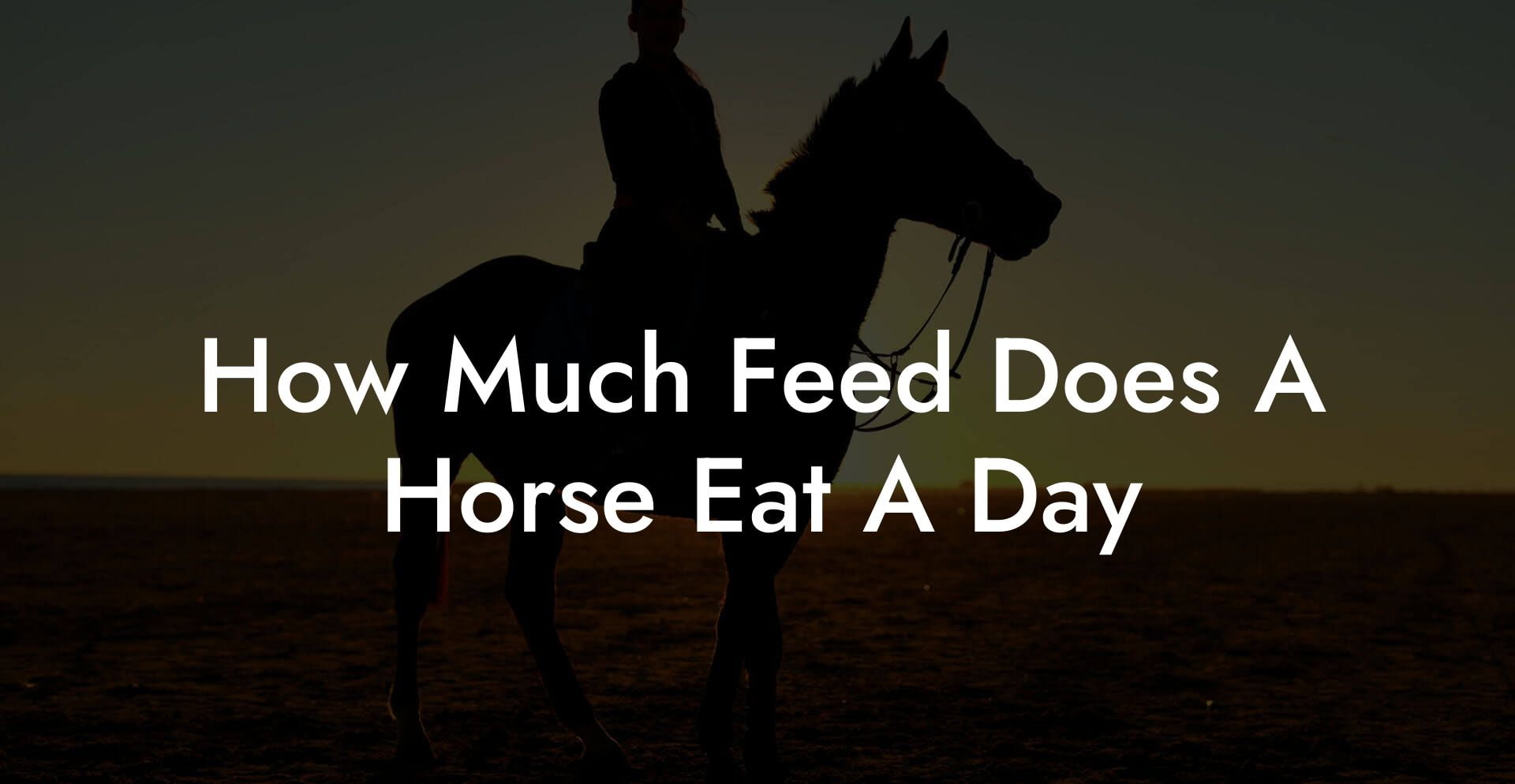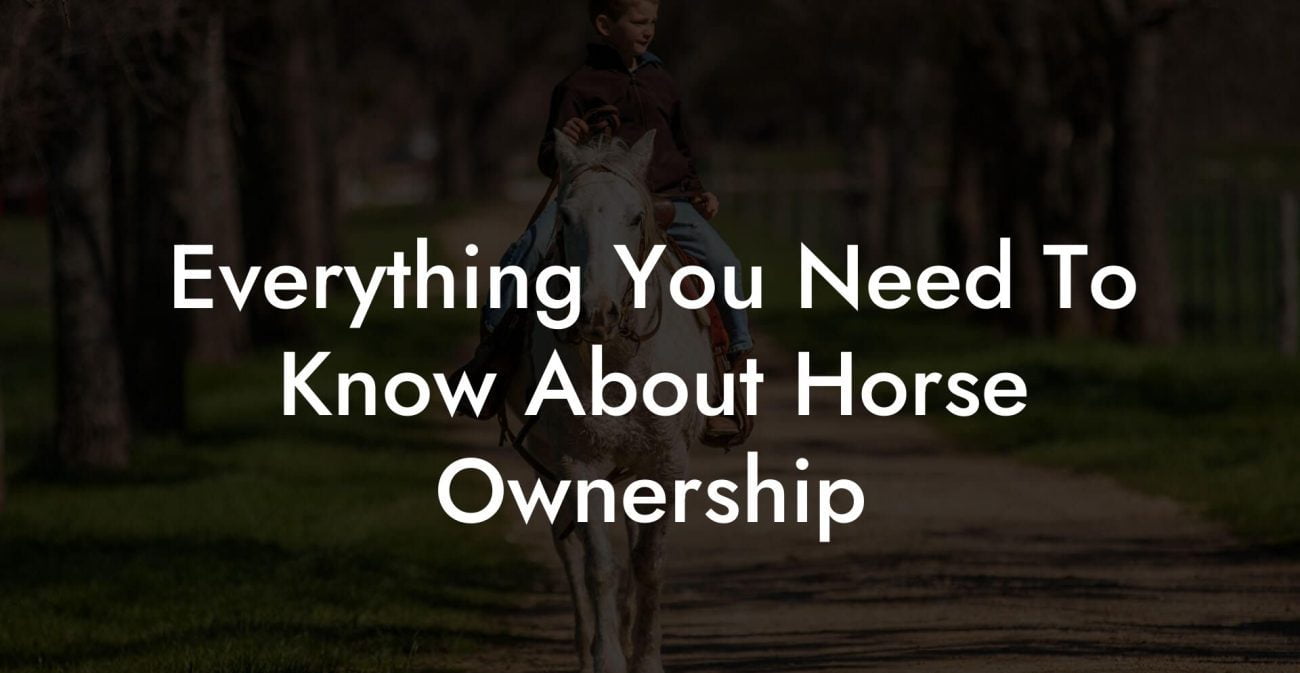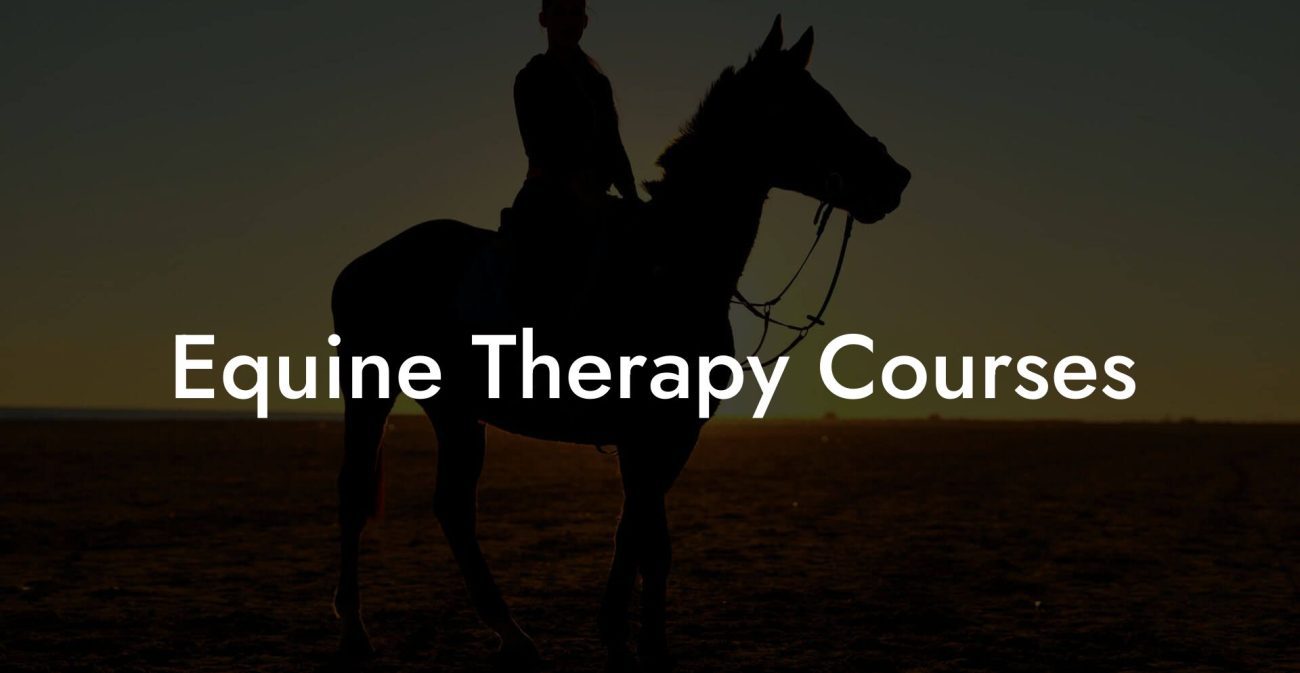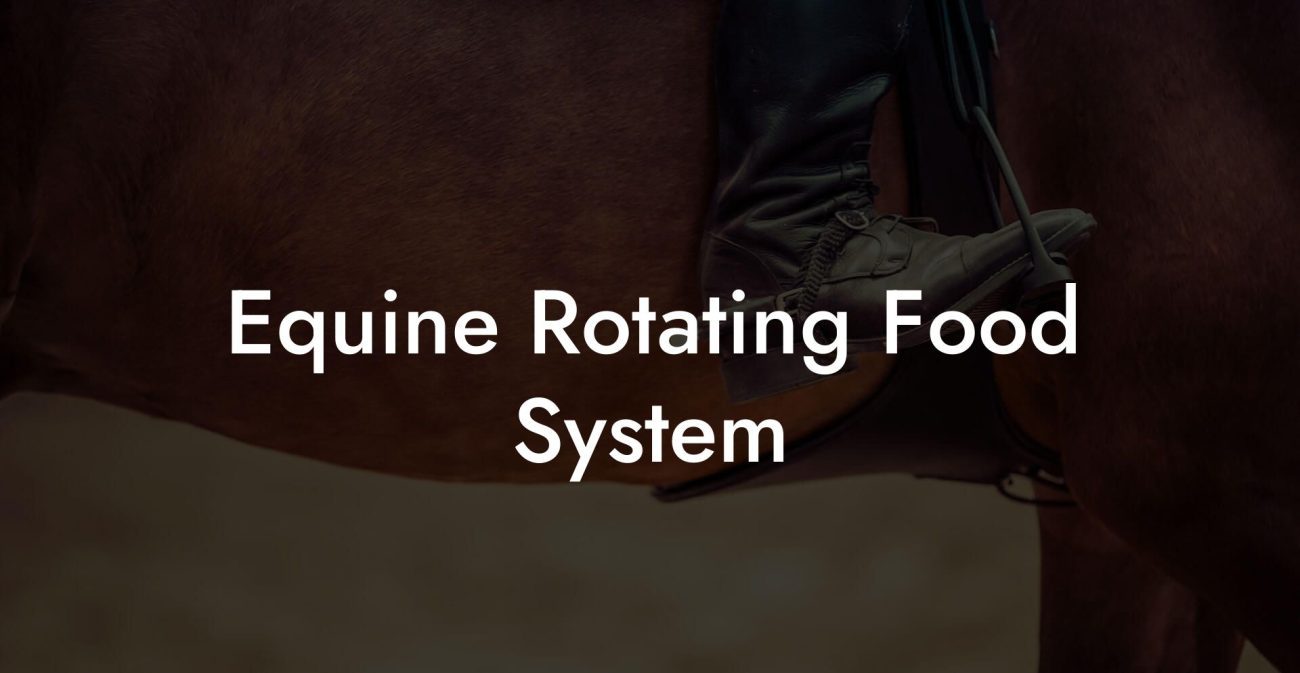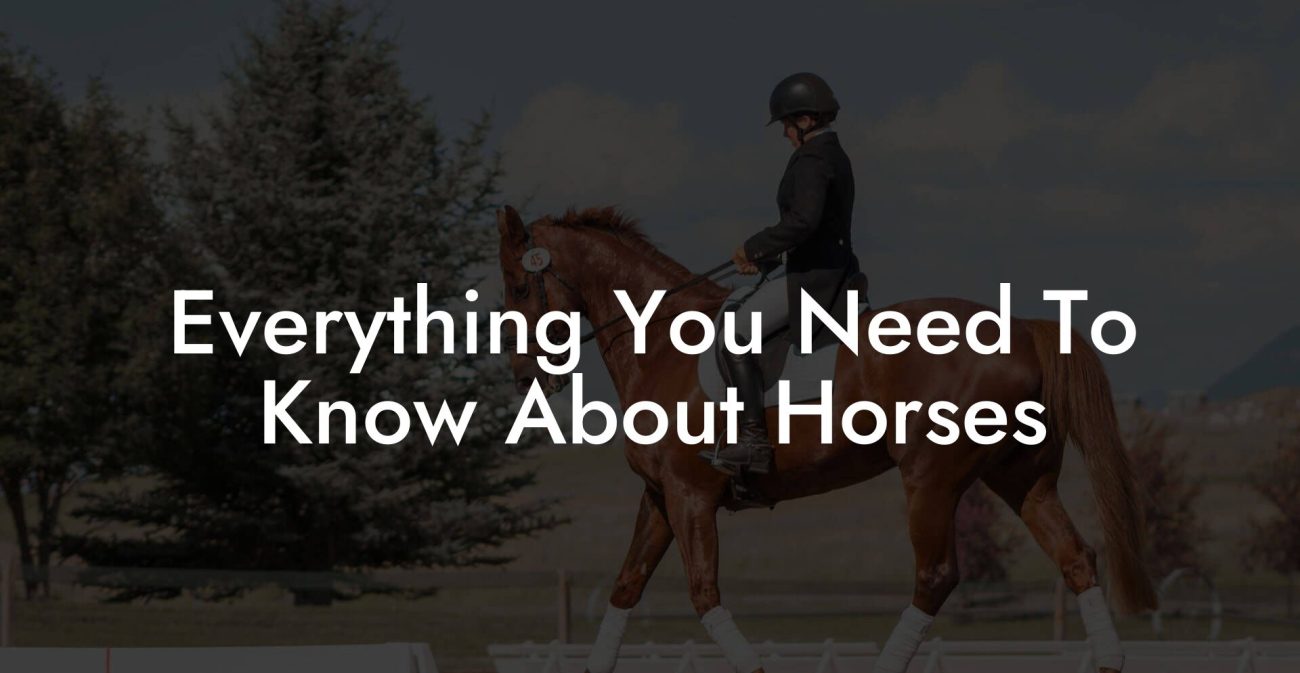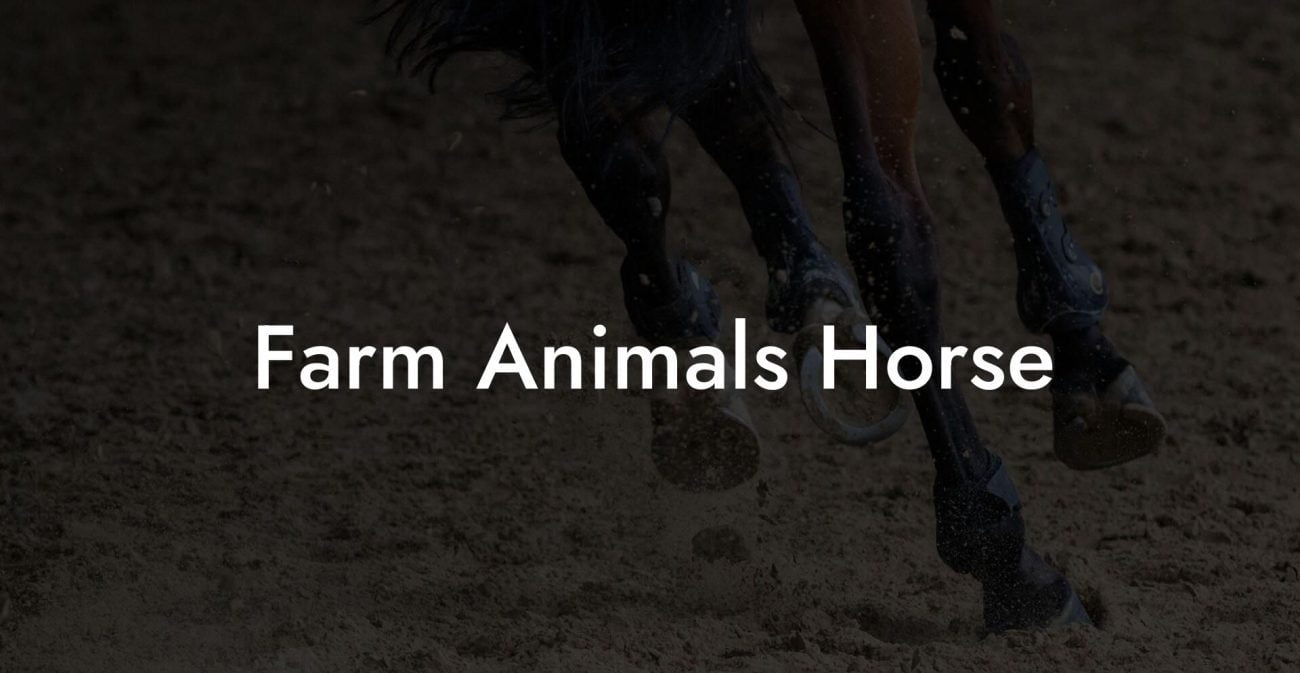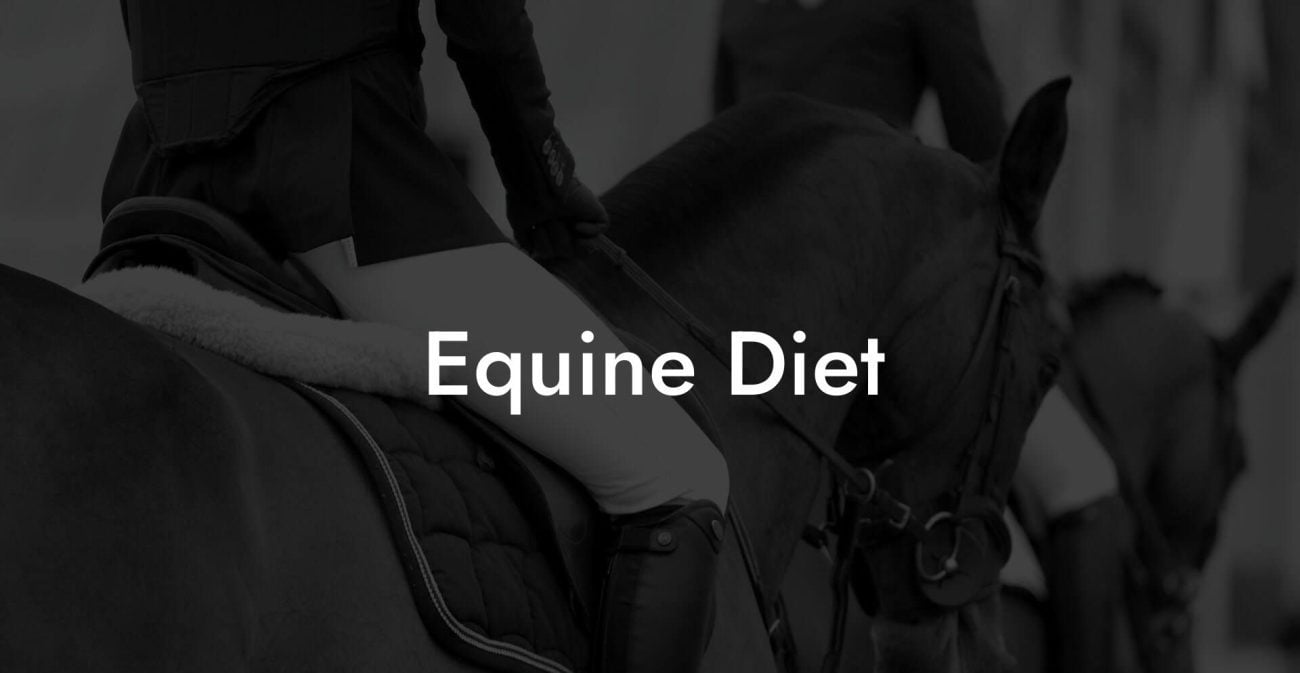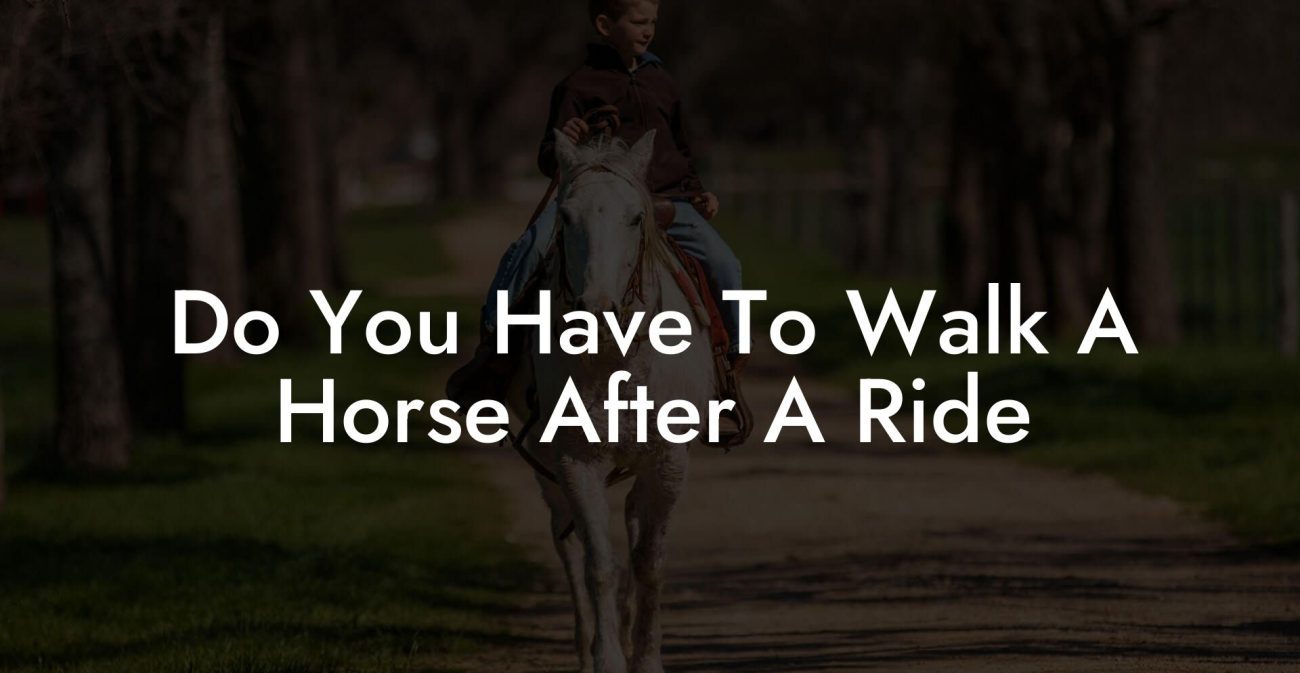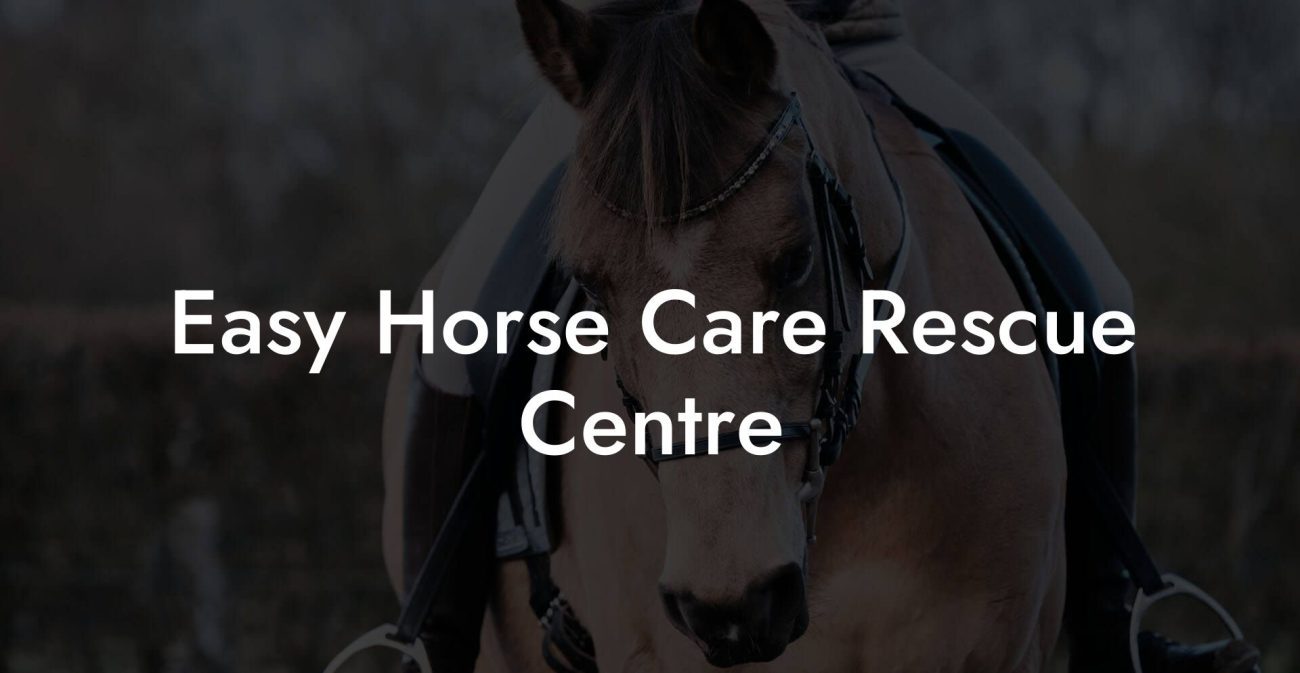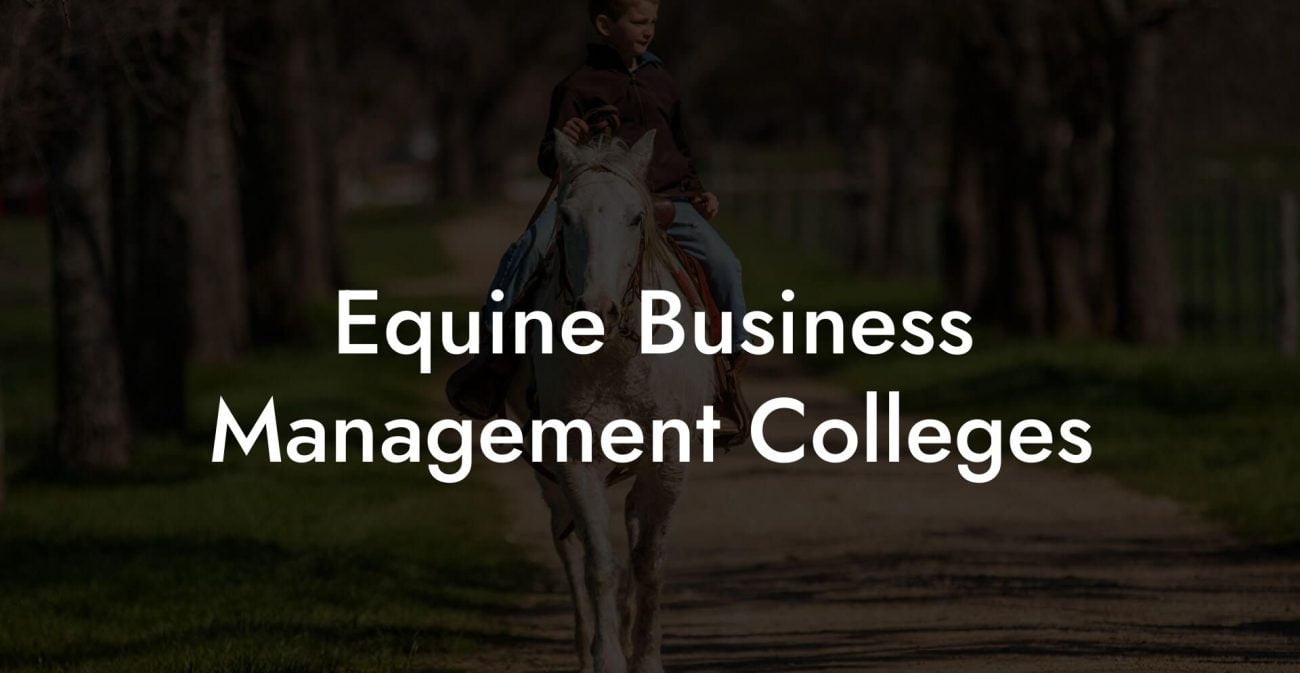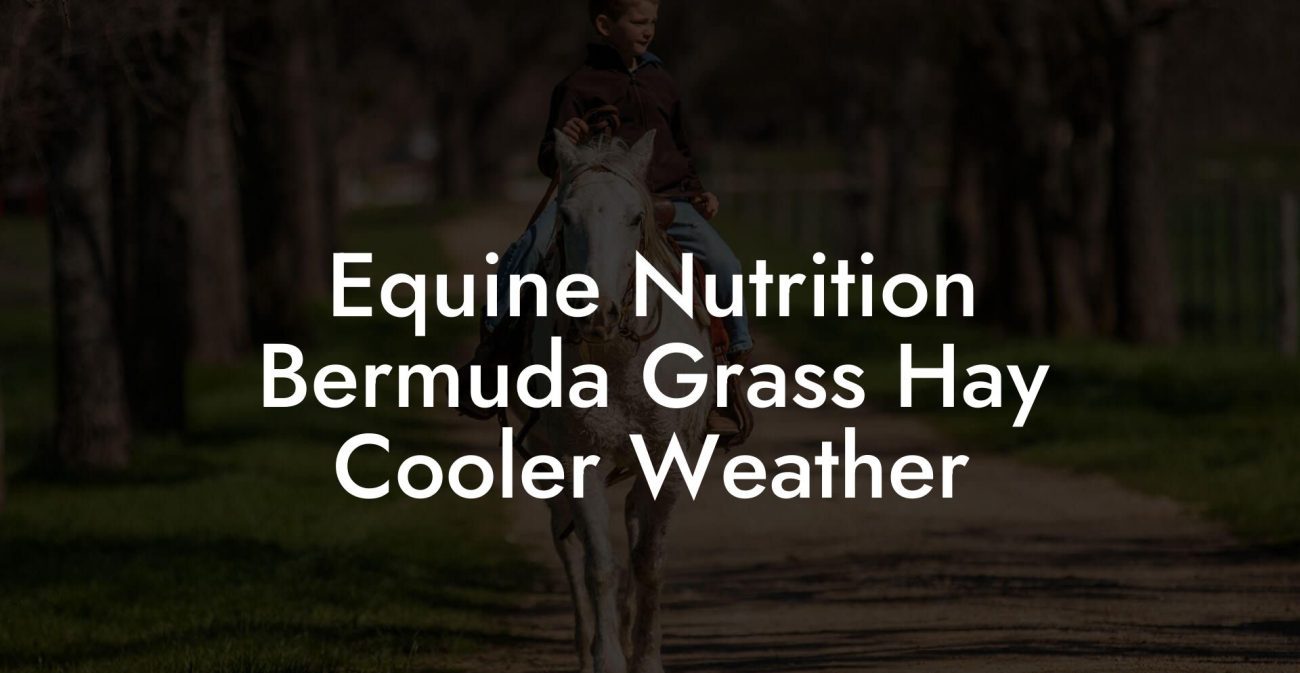Picture this: You’re scrolling through your feed, coffee in hand, and you stumble upon a breathtaking sunset over a sprawling pasture—with a majestic horse grazing as if it owns the place. Now, imagine being that savvy horse owner who not only appreciates epic views but also knows exactly how much feed their four-legged friend needs to thrive. Whether you’re a Gen-Z trendsetter with a passion for eco-friendly horses or a millennial equestrian juggling your career and a love for these majestic animals, you're about to dive into the ultimate guide on how much feed a horse eats a day. Get ready for a wild ride through hay bales, grain scoops, and the quirky reality of equine dietary needs.
Quick Links to Useful Sections
- Getting to Know Your Equine nutrition: The Basics
- The Science Behind the Chow: Factors That Affect How Much a Horse Eats
- Age
- Weight and Body Condition
- Activity Level
- Environmental Conditions
- health and Metabolism
- Decoding the Daily Rations: How Much Feed Does a Horse Eat?
- The Magic of Forage: Hay and Pasture as the Cornerstone of Equine Diets
- Pasture Grazing
- Hay: The Backup Plan
- Concentrates and Supplements: Boosting Energy and Balancing the Diet
- Feeding Schedules: Structuring the Day for Equine Happiness
- Special Considerations: Tailoring Feed for Different Life Stages and Conditions
- Foals and Young Horses
- Adult Horses in Active Work
- Senior Horses
- Pregnant and Lactating Mares
- Myths and Misconceptions About Feeding Horses
- Myth #1: More Grain Equals More Energy
- Myth #2: Horses Can Eat as Much Hay as They Want
- Myth #3: All Horses Need Supplemental Vitamins
- Technology and Tools: Modern Solutions in Equine Feeding
- Smart Feeders
- Equine Nutrition Apps
- Common Feeding Challenges and How to Overcome Them
- Challenge: Picky Eaters
- Challenge: Overeating or Weight Gain
- Challenge: Digestive Upsets and Colic
- Resources and Community Support: Your Next Steps in Equine Feeding Mastery
- Equine Feeding FAQs: Your Burning Questions Answered
- Your Path to Equine Nutritional Mastery
Getting to Know Your Equine nutrition: The Basics
Just like you wouldn’t survive on a diet of avocado toast and energy drinks alone, horses need a well-balanced meal plan to keep their coats shiny, hooves strong, and spirits high. At the heart of every successful feeding routine is an understanding of horse nutrition. Unlike humans who might crave a cheeseburger now and then, horses thrive on a consistent diet composed primarily of forage, such as hay or pasture grass. Their digestive system is designed to process fiber slowly and efficiently.
The primary components of a horse’s diet are:
- Forage: This includes pasture grass or hay, which makes up the majority of their daily intake.
- Concentrates: Think of these as the bonus treats—grains, pellets, or specially formulated feeds that provide extra energy and protein.
- Supplements: Vitamins, minerals, and occasionally, electrolytes to keep your horse at peak performance.
The beauty of equine nutrition is that it’s as much an art as it is a science. With the right balance, you can prevent digestive issues, weight loss or gain, and even behavioral quirks that come from hunger (or boredom).
The Science Behind the Chow: Factors That Affect How Much a Horse Eats
When it comes to determining how much feed a horse eats a day, a one-size-fits-all approach simply won’t do. A horse’s diet is influenced by a variety of factors, each as unique as the horse itself. Let’s break down the key factors:
Age
A foal’s dietary needs are entirely different from those of a mature, seasoned equine. Young horses require a carefully balanced diet to support their rapid growth, while older horses might need easily digestible feed to accommodate slower metabolisms.
Weight and Body Condition
A horse’s weight is a major indicator of how much it should be eating. Overweight horses may need a reduced-calorie diet to shed extra pounds, while underweight ones often require calorie-dense feeds to build muscle mass.
Activity Level
A trail riding champion isn’t going to have the same calorie needs as a horse that spends its days grazing in a quiet pasture. Performance horses engaged in rigorous routines need more energy from concentrates and supplements to keep up with their busy lifestyles.
Environmental Conditions
Ever notice how you tend to crave more food when it’s chilly outside? Horses are no different. In colder weather, horses may require additional calories to maintain their body temperature. Conversely, during hot weather, their energy needs might decrease slightly. Pasture quality and availability also play a significant role, as horses grazing on nutrient-rich grass naturally meet more of their caloric needs.
health and Metabolism
Every horse is a unique creature with its own metabolic rate. Health conditions, digestive efficiency, and even dental issues can impact how well a horse processes its feed.
By taking these factors into account, you can customize your horse’s feeding regimen to ensure it gets exactly what it needs—no more, no less.
Decoding the Daily Rations: How Much Feed Does a Horse Eat?
So, how much feed does a horse actually eat in a day? The answer isn’t as straightforward as a magic number on a box of cereal. In general, forage should account for about 1.5% to 2.5% of a horse’s body weight per day. For instance, a 1,000-pound horse might consume 15 to 25 pounds of hay daily.
But here’s where it gets interesting: if your horse is actively in training or performing, it might need some energy boosters in the form of grains or concentrates. These additions can vary, often ranging from 1 to 4 pounds per day, based on the horse’s specific energy requirements.
It’s important to note that water is a critical—but sometimes overlooked—component of a horse’s diet. A healthy horse can drink anywhere from 5 to 10 gallons of water per day, depending on the weather and its level of activity.
Remember, the key to a healthy diet is balance. Overfeeding concentrates can disturb a horse’s delicate digestive system, while underfeeding can lead to weight loss and decreased performance.
The Magic of Forage: Hay and Pasture as the Cornerstone of Equine Diets
Forage, whether it comes from a lush pasture or high-quality hay, is the foundation of every horse’s diet. Unlike processed grains, forage is loaded with natural fibers that promote gut health and proper digestion. The mantra here is simple: feed your horse like nature intended.
Pasture Grazing
When conditions are favorable, horses should have the opportunity to graze on natural pasture. Not only does this provide them with a diverse range of nutrients, but the act of grazing also plays a crucial role in their mental well-being. The constant movement and the pleasure of nibbling on fresh grass give horses a natural form of exercise, while also engaging their brain.
Hay: The Backup Plan
When pasture isn’t available—be it due to seasonal changes or geographical constraints—hay steps in as the trusty backup. There are several types of hay available, ranging from alfalfa to timothy, each with its own nutritional profile. Alfalfa, for example, is high in protein and calcium, making it an excellent choice for young, growing horses or those in heavy work. Timothy hay, on the other hand, is often favored for adult horses to maintain a balanced weight.
The choice of hay can make a huge difference in your horse’s overall health. It’s essential to analyze your horse’s specific needs and consult with a nutritionist or vet to select the best variety. Quality matters—a little extra care in sourcing high-quality hay can translate into significant benefits in terms of digestion, coat condition, and performance.
Concentrates and Supplements: Boosting Energy and Balancing the Diet
While forage is the core of your horse’s dietary needs, concentrates are the secret weapon for those times when extra energy is needed. For performance horses or those struggling to maintain weight, generously supplementing the diet with grains or commercially prepared concentrates can bridge the nutritional gap.
Concentrates are typically rich in carbohydrates and proteins and come in various forms such as pellets, textured feeds, and crumbles. However, it’s essential to introduce these high-energy feeds gradually—think of it like slowly switching from decaf to a double espresso—to avoid upsetting your horse’s sensitive digestive system.
Along with concentrates, supplements play a pivotal role in ensuring your horse receives all the micronutrients required for optimal health. These can include:
- Vitamins and Minerals: Calcium, phosphorus, magnesium, and vitamins A, D, and E often need to be balanced to support bone health and muscular function.
- Electrolytes: Especially important for horses in heavy work or in hot climates, these help maintain hydration and muscle function.
- Probiotics and Digestive Enzymes: Beneficial for refining digestion and fostering a healthy gut flora.
Always remember: more isn’t always better. Before adding any new concentrate or supplement to your horse’s diet, get advice from a vet or an equine nutrition specialist. The goal is to enhance the diet, not overwhelm their digestive systems.
Feeding Schedules: Structuring the Day for Equine Happiness
Just as you might follow a daily planner to keep your life in order, your horse benefits immensely from a consistent feeding schedule. Horses are creatures of habit, and their digestive systems are finely tuned to regular intervals.
Here’s a typical feeding schedule that many horse owners follow:
- Early Morning: Begin with a generous portion of forage to kickstart the digestive system. If you have access to pasture, early morning grazing is ideal.
- Midday: Offer a light snack, which can be a small handful of concentrates or a mineral lick, especially if your horse is active.
- Evening: Serve a hearty meal of forage again. Evening meals can also be accompanied by small amounts of concentrates if your horse is in active training.
This routine helps maintain an even energy distribution throughout the day and prevents issues such as colic, which can occur when a horse’s stomach remains empty for too long.
The key is to adapt the schedule to fit your horse’s specific needs—taking into account its daily activity, environmental changes, and any special dietary requirements. A well-planned feeding routine not only supports physical health but also contributes to behavioral predictability, reducing stress and anxiety in your equine companion.
Special Considerations: Tailoring Feed for Different Life Stages and Conditions
Just as every human goes through different life stages with varying nutritional demands, horses require tailored feeding approaches during different phases of life. Here’s a closer look at some of the special considerations:
Foals and Young Horses
Foals and young horses are on a growth spurt, and their dietary needs are rapidly evolving. While they do rely on their mother’s rich milk in the early weeks, transitioning to solid food requires a careful selection of high-quality, easily digestible feeds. Young horses benefit immensely from nutrient-rich, soft forages and a gradual introduction to concentrates as their digestive systems develop.
Adult Horses in Active Work
For adult horses in rigorous training or performance, the calorie needs ramp up. These horses require a balanced mix of forage and energy-dense concentrates to fuel workouts, promote muscle recovery, and maintain endurance throughout long days in the saddle.
Senior Horses
Aging horses can face several challenges, from dental issues to slower metabolic rates. For senior horses, the focus shifts toward easily digestible feeds that are high in fiber yet low in calories. Softened hay, pelleted feeds, or even soaked grains can help older horses absorb nutrients more efficiently, ensuring they stay as spry as possible.
Pregnant and Lactating Mares
A mare’s nutritional needs escalate during pregnancy and lactation. The diet should not only support the mare’s health but also promote the healthy growth of the foal. High-quality hay paired with carefully measured concentrates and a balanced mix of vitamins and minerals is crucial during this phase.
The secret is to continually monitor your horse’s body condition and adjust the diet accordingly. Regular checkups and consultations with an equine nutritionist can make all the difference in ensuring that every life stage is met with the appropriate dietary plan.
Myths and Misconceptions About Feeding Horses
Let’s set the record straight—there are plenty of myths swirling around the equine world about feed and nutrition. If you’re new to horse care, you might have heard some of these:
Myth #1: More Grain Equals More Energy
It’s tempting to think that slapping on extra grain will magically boost your horse’s stamina. In reality, too much grain can upset the delicate balance of the digestive system, potentially leading to colic and laminitis (a painful hoof condition). Moderation is key!
Myth #2: Horses Can Eat as Much Hay as They Want
While it’s true that forage accounts for the bulk of a horse’s diet, overfeeding hay can lead to obesity and related health issues. It’s all about the right balance for your horse’s size, age, and activity level.
Myth #3: All Horses Need Supplemental Vitamins
Not every horse requires a vitamin cocktail. Often, a well-chosen hay or pasture will provide all the necessary nutrients. Supplements should be used strategically to fill specific gaps as recommended by your veterinarian.
Dispelling these myths is a crucial step in setting up a feeding regimen that’s truly beneficial, ensuring that you’re not just following trends but basing your practices on sound science.
Technology and Tools: Modern Solutions in Equine Feeding
In this digital era, equine nutrition has also embraced technology. From smart feeders that automatically dispense precise amounts of food to apps that track your horse’s weight and caloric intake, the modern equestrian can optimize feeding routines with a few taps on their phone.
Imagine having a gadget that not only monitors your horse’s feed but also adjusts to seasonal changes and reflects variations in training intensity. These advanced tools help take the guesswork out of equine nutrition, ensuring your horse’s dietary needs are met with precision.
Smart Feeders
Smart feeders are game-changers, particularly for owners with multiple horses. These systems are designed to portion out feed at scheduled intervals, track consumption, and even alert you when supplies run low. They help regulate intake, which is especially useful during times of high energy expenditure.
Equine Nutrition Apps
Several apps have been developed with equine enthusiasts in mind. These tools allow you to log feed types, monitor weight fluctuations, and set reminders for supplements or veterinary appointments. The integration of technology makes managing your horse’s diet both efficient and fun.
Embracing these modern solutions not only helps you stay on top of the feeding game but also aligns with the tech-savvy lifestyles of Gen-Z and millennial horse owners who appreciate a marriage of tradition with innovation.
Common Feeding Challenges and How to Overcome Them
Even the most well-planned feeding regimen can hit a few bumps along the way. Here are some common challenges and practical tips to tackle them:
Challenge: Picky Eaters
Just like some of us can be a bit finicky about our avocado toast, your horse might show a preference for certain types of hay or grains. If you’re dealing with a picky eater, try rotating different types of forage or mixing concentrates with bran to make meals more appealing.
Challenge: Overeating or Weight Gain
Horses that are naturally lazy grazers can sometimes overeat, leading to weight gain and metabolic issues. Portion control, using slow feeders, and increasing physical activity are effective strategies to keep your horse trim and fit.
Challenge: Digestive Upsets and Colic
Sudden changes in diet or overfeeding concentrates can upset the equilibrium of your horse’s stomach, resulting in colic—a serious condition that requires prompt attention. The best practice is to introduce diet changes gradually and ensure a consistent, balanced routine.
By anticipating and addressing these challenges, you can ensure a smoother, healthier feeding experience for your horse, turning potential feed fiascos into manageable tweaks in your routine.
Resources and Community Support: Your Next Steps in Equine Feeding Mastery
Embarking on the journey of understanding how much feed your horse needs is not a solo adventure. Today’s equestrian community is a vibrant mix of experts, seasoned horse owners, and innovative startups dedicated to making horse care as informed and engaging as possible.
Consider joining online forums, social media groups, or local equestrian clubs where you can swap stories, share photos of your four-legged friends, and get advice on everything from the best hay suppliers to the most cutting-edge feeding gadgets. Whether you’re looking for reliable research articles, video tutorials, or a chat over virtual coffee with fellow horse enthusiasts, these networks provide a treasure trove of insights.
As you explore further, don’t be afraid to experiment with different feeding strategies, document your results, and adjust as needed. After all, the best way to master equine nutrition is to be proactive, inquisitive, and continuously engaged with the community around you.
Your next step could be as simple as scheduling a consultation with an equine nutritionist or subscribing to a trusted equine health magazine. The fusion of expert advice and community support can empower you to create a feeding strategy that’s not only scientifically sound but also perfectly tailored to your horse’s unique needs.
Equine Feeding FAQs: Your Burning Questions Answered
Below are some frequently asked questions about how much feed a horse eats a day, along with detailed answers that blend expert advice and real-world experience.
1. How much forage should my horse eat daily?
In general, forage should make up about 1.5% to 2.5% of your horse’s body weight per day. For a 1,000-pound horse, this equals roughly 15 to 25 pounds of high-quality hay or pasture grass. Adjustments may be necessary based on activity level and environmental conditions.
2. Can I mix different types of hay for my horse?
Absolutely. Mixing different types of hay can provide a more balanced range of nutrients and help prevent boredom. However, ensure that all types are free from dust, mold, and weeds to keep your horse healthy.
3. When should I introduce concentrates into my horse’s diet?
Concentrates are generally recommended for performance horses, those with high energy demands, or horses that struggle to maintain their weight on forage alone. Introduce them gradually to prevent upsetting your horse’s digestive system.
4. What are the signs that my horse is not getting enough nutrition?
Look out for weight loss, a dull coat, decreased energy levels, and changes in behavior. Regular veterinary check-ups and monitoring body condition scores are essential to ensure your horse’s diet is on point.
5. How do environmental factors affect feeding?
In colder weather, horses may require more calories to maintain body heat, whereas during hot weather, their energy needs might drop slightly. Adjust the feeding regimen seasonally to accommodate these changes.
6. What are the benefits of using smart feeders?
Smart feeders help in portion control, promote a consistent feeding schedule, and can track consumption patterns. This technology is especially useful for managing the diets of multiple horses or those with specific dietary needs.
7. Should I consult a nutritionist for my horse’s dietary plan?
If you’re ever in doubt about the best feeding practices, consulting an equine nutritionist or your veterinarian is wise. They can provide personalized recommendations tailored to your horse’s unique needs.
8. How does water intake affect a horse’s digestion?
Water is critical in maintaining proper digestion and aiding in the absorption of nutrients. A healthy horse typically drinks between 5 to 10 gallons of water per day, so ensuring fresh, clean water is always available is essential.
9. Can overfeeding lead to health issues in horses?
Yes, overfeeding—especially too many concentrates—can lead to obesity and metabolic disorders such as laminitis. It’s important to balance the diet carefully and monitor your horse’s weight regularly.
10. How often should I change my horse’s feeding regimen?
Any changes to a feeding regimen should be gradual and based on your horse’s evolving needs, health status, and activity levels. Regularly reviewing your horse’s condition and consulting professionals will guide timely adjustments.
Your Path to Equine Nutritional Mastery
Whether you’re a newly minted horse owner or a seasoned rider, understanding how much feed your horse eats a day is crucial for fostering a long, healthy, and vibrant life for your equine companion. With the perfect mix of forage, concentrates, supplements, and a consistent feeding schedule, you’re not just feeding a horse—you’re fueling a lifestyle.
The journey to mastering equine nutrition involves a blend of science, personal observation, community advice, and the occasional trial-and-error experiment. Embrace the process with patience and a willingness to learn and adapt. After all, every horse, like every human, is unique, and what works for one might need tweaking for another.
From the early morning hay ration to those high-tech smart feeders, every component of your horse’s feeding plan plays a role in its overall health. Dive into this ever-evolving world of equine nutrition and form a bond with a routine that not only nourishes physically but also adds a sense of fulfillment to your riding adventures. Your horse—and your selfie portfolio of epic riding moments—will thank you.
Now is the time to take action. Reevaluate your current feeding regimen, join forums where passionate horse experts share the latest insights, and don’t shy away from experimenting responsibly with new feeding strategies. Your journey to equine nutritional mastery begins with that first perfectly balanced meal.
So gear up, saddle up, and let your equine companion gallop toward a healthier, happier future. After all, a well-fed horse is not just a symbol of care—it’s a dynamic partner in all of your adventures. Cheers to balanced bales, nutrient-packed grains, and a lifetime of happy gallops!

